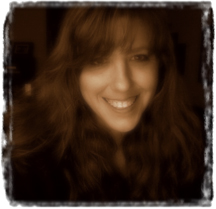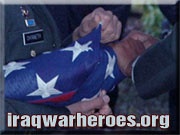 I’ve reached middle age. My children only speak to me when they need money or a ride; my last eye appointment resulted in tri-focals and all my intentions to “gray gracefully” recently washed down the drain in a sudsy swirl of “biscotti blonde” hair dye.
I’ve reached middle age. My children only speak to me when they need money or a ride; my last eye appointment resulted in tri-focals and all my intentions to “gray gracefully” recently washed down the drain in a sudsy swirl of “biscotti blonde” hair dye. Those, however, are the minor inconveniences of mid-life; the glimpses in the mirror reminding us things change and those changes are, more often than not, outside of our control. Mid-life also asks big questions whose answers cannot be found at the optometrist or plucked from drugstore shelves; questions we all must, at some time, face. Our parents’ age, they get ill, they die. It is then we realize biology and the passage of time are unbeatable foes.
Parents. Death. Biology. Those are loaded words for an orphan; words with a meaning few will understand; words filled with should-have-beens, losses and loneliness.
Somewhere, 3,000 miles away, my mother is dying. The surgeons closed her up, saying “there’s nothing we can do.” I found out days later, third hand. My adoptive mother holds my mother’s contact information hostage, using her eminent death and my emotions as a means to end our estrangement. I won’t sell my soul for a phone number.
So somewhere, 3,000 miles away, my mother is dying. I don’t know how to reach her and am not even sure I want to. There is something fundamentally wrong with this picture. My ambiguity makes me nauseous. In times like these, adult daughters are supposed to hold the family together. Were I not an orphan, these past weeks would have been filled with concern, torturous days in a hospital waiting room, heartfelt conversations traversing decades of memories and visits with unbending grief.
 Instead, I will learn I’ve lost my mother when I stumble upon her online obituary. There will be no sibling on the other end of the phone line, sharing the aftermath; no gathering of family finding comfort in a shared experience. There will be no “bereavement flights” because, legally, I don’t meet the qualifications. I will not attend the funeral because my brothers will ask me to sit in the back, keep my identity cloaked and do nothing to further upset those who have come to grieve.
Instead, I will learn I’ve lost my mother when I stumble upon her online obituary. There will be no sibling on the other end of the phone line, sharing the aftermath; no gathering of family finding comfort in a shared experience. There will be no “bereavement flights” because, legally, I don’t meet the qualifications. I will not attend the funeral because my brothers will ask me to sit in the back, keep my identity cloaked and do nothing to further upset those who have come to grieve.
My grief will not be public or acknowledged. I must find a way to say goodbye in a world that thinks I can’t lose what I have never truly had.
I spent the first two decades of my life praying she remembered me; the next decade pressing against a reunion relationship loaded with conflicts and concessions; and the last decade resolved in the knowledge all our missing years carved an impassable chasm between us.
The greatest irony of all in this experience is that, for the first time in forty years, I hope my mother isn’t thinking of me. As she faces her last days on this earth, I don’t want her heart full of anguish and regret.  I hope she can spend her last hours revisiting the life she lived rather than mourning the one that disappeared in a decision made in the early morning hours of
I hope she can spend her last hours revisiting the life she lived rather than mourning the one that disappeared in a decision made in the early morning hours of
And if she does think of me, I hope she knows that I am okay. I have learned how to be an orphan and ceased looking for ways to fix what is unfixable. I hope she knows that in the process of doing so, I’ve discovered her, the person. I hope she knows that, in my eyes, she is no longer a villain or hero. I see her as she is; a flawed human being. It sounds like something so simple, yet is one of my proudest accomplishments. I am okay; okay with what happened and okay with her.
Perhaps most importantly, I hope she knows that for all the things we couldn’t, or didn’t, share, we do share the wish that things had been different. I will always, always wish I’d been somebody’s daughter. When she takes her last breath, I hope she knows that I wish that somebody had been her.
Labels: adoption, daughters, death, mothers, mothers and daughters









